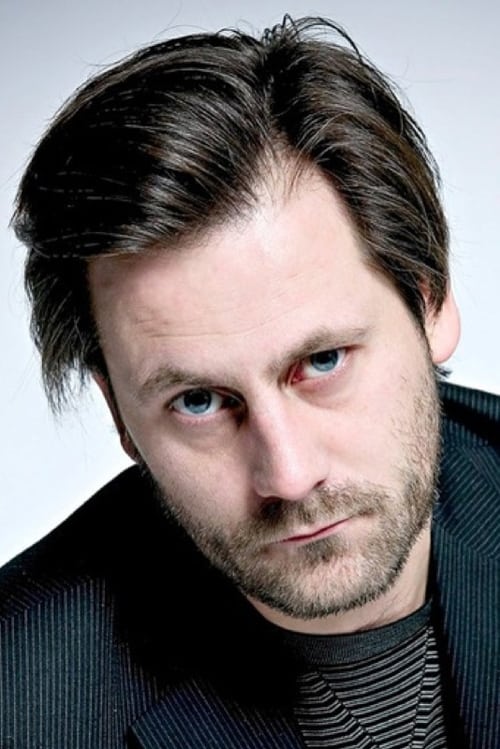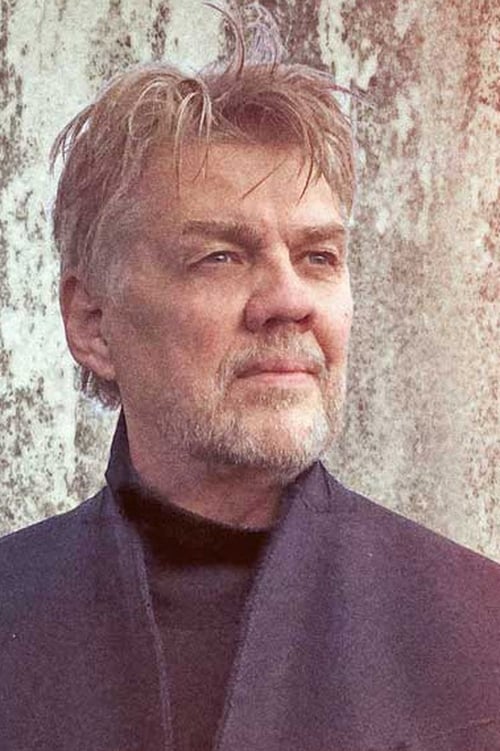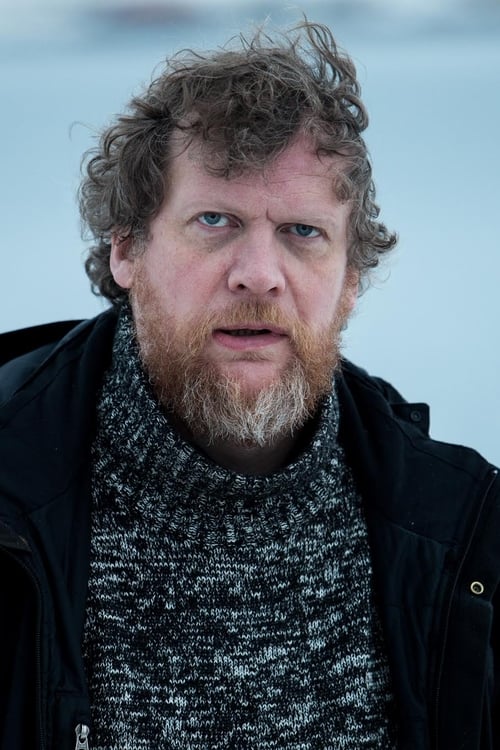Remote Control (1992)
장르 : 코미디
상영시간 : 1시간 18분
연출 : Oskar Jónasson
시놉시스
Since his mother wants to watch TV, Axel, a young auto-mechanic, must recover her remote control, accidentally taken by his punk sister Maja. During his quest, he becomes involved in the conflict between Moli, the liquor smuggler, and Aggi, a night club owner who wants to be Iceland's first mafia boss.

In Russian, "Svyato" means "happy". But it is also a nickname for Svyatoslav, the son of director Kossakovsky, who for two years covered mirrors from Svyato. For the first time in his life, Svyato is going to watch himself on a mirror.

Reconstruction with photographies of the lost film 4 devils.

Banned in the Soviet Union for its "negative" content and never released, Kalatozov was forced to retreat from filmmaking for seven years because of this film. The film sets out to illustrate the old adage, "For want of a nail, the battle was lost," showing how the inferior quality of something so trivial as a nail in a soldier's boot leads inexorably to the capture of an armored train. Kalatozov had intended to demonstrate the crucial and universal importance of efficiency in Soviet industry, but the government decided that his fable gave a negative impression of the Red Army's capabilities.

Biography of risk-taker and raconteur John Huston from his childhood to become one of the most highly respected filmmakers in the world.

Pedro and Julian, two friends entomologists are in love the same woman, Adela, who decides to marry Peter. Julian attends the marriage, but acts against women as her own husband. The passion that unites the two friends, entomology, leads them to conclude a treaty. The woman, however, is not comfortable with the life she has lived and want to abandon them. Discovered that she suffers from the disease, makes men willing to please her in everything, without her knowing the reason for his change of attitude.
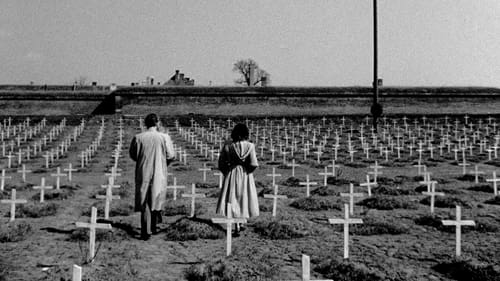
Prague, during World War II. Hana Kaufmann, a Jewish ophthalmologist, marries Dr. Antonín Bureš, a Christian man. When her family is sent to the Theresienstadt concentration camp, their romance turns into a struggle for survival.
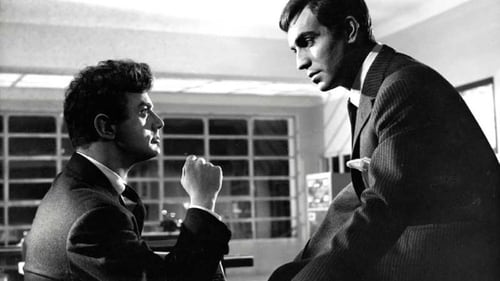
Alfredo is a cheerful party animal, son of a wealthy man. Alfredo's brother, a young very focused and mature boy, and their father try unsuccessfully to change the profligate lifestyle of Alfredo to remedy the dissolute life of the latter, which, by all indications, is clearly gay.

Antonio and Concha, a couple who are constantly fighting about money, win the Christmas Lottery first prize. Concha, who is very bossy, starts making decisions about how they're going to spend it. But Antonio is fed up with her, he just wants to go to Brazil, lay in the sun, and never see her again. So he starts to plan how to get rid of her...

A Jewish family suffers persecution and suffering in the 16th century when they are accused of practicing witchcraft.
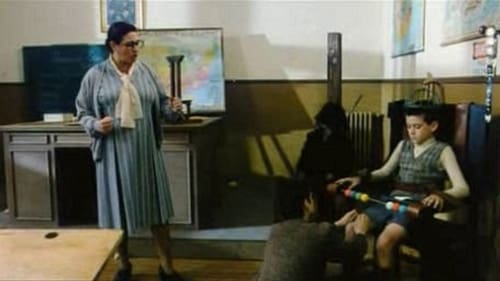
The teacher explains to her students, step by step and with full details and live examples, how are the different types of execution: the electric chair, the garrote, the gallows ..
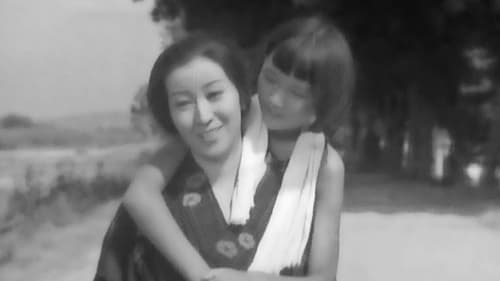
Two young girls, Nobiko and Tomiko, go to the same school. The less fortunate girl Nobiko is one of the top students, while the rich girl Tomiko is not. At one time Tomiko's father was quite fond of Nobuko's mother.
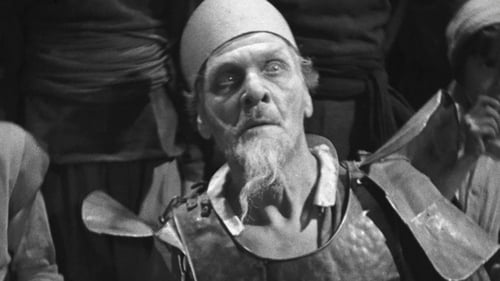
Inflamed by his readings of chivalric novels, Don Quixote, a knight with a sad face, accompanied by Sancho Panza, a peasant steeped in common sense, decides to set off across the world in search of improbable adventures.
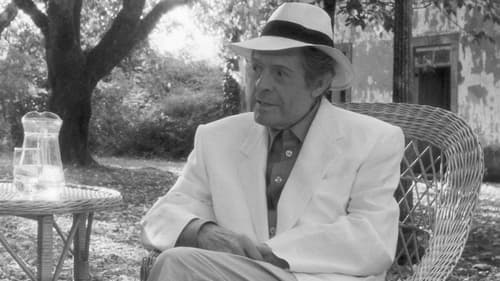
In 1996, Marcello Mastroianni talks about life as an actor. It's an anecdotal and philosophical memoir, moving from topic to topic, fully conscious of a man "of a certain age" looking back. He tells stories about Fellini and De Sica's direction, of using irony in performances, of constantly working (an actor tries to find himself in characters). He's diffident about prizes, celebrates Rome and Paris, salutes Naples and its people. He answers the question, why make bad films; recalls his father and grandfather, carpenters, his mother, deaf in her old age, and his brother, a film editor; he's modest about his looks. In repose, time's swift passage holds Mastroianni inward gaze.

Two kinds of starfish, the brittle and the feather. The brittle star moves its arms alone, without the aid of suckers. Underneath is a single opening. Stalks move food close to the mouth and move waste away. We see vents, used in reproduction and breathing. We watch the hatched young expelled into the water. The camera shows us brittle stars' intricate patters. We observe feather stars in clusters, like ferns. One turns over slowly; arms have branches with stalks for breathing and gathering microscopic food. Reproductive organs are inside branches. We see eggs develop at 1,400 nature's speed. Larvae emerge, 0.1 mm long. They grow. A feather star takes a walk.

Come take an avant-garde walk in the Montparnasse of the late 1920's. This district of Paris, filmed in a most unusual way, shows how dedicated it is to art. Visit its art galleries and exhibitions, take a glimpse of famous painter Fujita, of Luis Buñuel eyeing the legs of beautiful Parisian passing the terrace of the café where he sits, of Italian futurists Marinetti, Prampolini and Russolo.

A lyrical story about first love, death and disappointment, based on a poem of the same title.

Portrayal of a talented, influencial and troubled artist: a filmmaker who fought his own demons and seemed to live his own legend like no other director. Against all odds Sam Peckinpah was able to create a very personal body of work in the studio system of Hollywood and with his powerful directing and editing style changed the way of filmmaking forever. Legendary for his use of slow-motion violence, various scandals and his ongoing problems with sudios and producers, the story of Peckinpah is filled with tragedy, humor, success and defeat.

Bruno, a young traffic agent of the Spanish Guardia Civil, is abandoned by his wife after having an affair. Bruno, devastated, discovers one night, by chance, a strange passageway that leads him to another level of reality.

Award-Winning filmmaker Paul Leduc (Frida, Naturaleza Viva, Reed: Insurgent Mexico, Barroco) directed this gritty musical drama about life in the ghettos of Mexico City during the 1980s. With a soundtrack of Mexican rock music, the camera takes the viewer through the streets, to rock concerts, and to the bars and clubs, where he exposes the hunger, repression, unhealthy conditions and violence in the marginal communities of Mexico's capital city.

An educational film, a movie through a microscope, in two parts. Within minutes after the egg drops in the water, fertilization occurs and contractions start. Soon, in a fertilized egg, we see the germinal disc divide into two blastomeres. Divisions continue; contractions re-occur at the cap as it covers the egg. Title cards in French tell us what to watch for. Muscular movements and circulation appear; the heart beats. In part two, we see blood circulation begin as red cells develop on the surface of the yoke. They mass toward the heart. Arteries form, blood flows. The egg hatches and blood flows to new areas.

